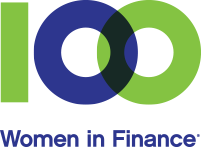Leesa Soulodre
Founder & VC GP. Educator. Speaker. Superconnector. Partner She Loves Tech. Former Veteran.
A Step Towards Inclusion for Women
In a significant move towards a more inclusive investment landscape, the US House of Representatives recently passed The Equal Opportunity for All Investors Act of 2023 (H.R. 2797). This legislation aims to modernize the accredited investor rules and grant accredited investor status to individuals who pass a certification exam. This development is particularly relevant for women, who have historically faced barriers when it comes to accessing investment opportunities due to systemic biases and wealth-based criteria. The potential expansion of accredited investor definitions could pave the way for greater gender diversity and equitable access to the investment ecosystem.
The Current Landscape:
Currently, the term “accredited investor” in the US is tied to income and wealth thresholds. To qualify, individuals must earn over $200,000 per year (or $300,000 jointly with a partner) or have a net worth exceeding $1 million, excluding their primary residence. These requirements have limited access to investment opportunities primarily to high-income earners and individuals with substantial wealth. As a result, women, who often face income disparities and wealth gaps, have been disproportionately excluded from participating in the startup and venture capital space.
The Push for Change:
Recognizing the inherent unfairness and ineffectiveness of the existing regulations, lawmakers have sought to level the playing field and broaden the definition of accredited investors. The recent passage of H.R. 2797 with a significant majority in the House demonstrates a growing consensus for change. This bipartisan support indicates a recognition of the need to expand access to investment opportunities beyond traditional income and wealth metrics.
The Role of Accredited Investor Certification Exam:
Under the new legislation, the Securities and Exchange Commission (SEC) is tasked with developing an accredited investor certification exam that will be administered by FINRA (Financial Industry Regulatory Authority). This exam aims to provide a pathway for individuals to demonstrate their financial competence, regardless of their income or net worth. By shifting the focus from arbitrary thresholds to financial literacy and competence, this exam has the potential to open doors for a more diverse group of investors, including women, who may not meet the traditional wealth-based criteria.
Importance for Women in Investing:
The expansion of the accredited investor definition is particularly significant for women. By allowing individuals to prove their financial competence through an exam, this reform acknowledges that investment decisions should be based on knowledge and understanding rather than solely on financial resources. This change could help break down the barriers that have limited women’s participation in the investment ecosystem and create a more level playing field.
The Future of Access and Inclusion:
While the passage of H.R. 2797 in the House is a positive step towards inclusive investing, its journey is not yet complete. The bill now moves to the Senate, where further deliberations and potential amendments await. It is worth noting that the SEC, under the leadership of Chair Gary Gensler, has reportedly expressed opposition to the bill. However, the widespread recognition of the need for change and the growing support among lawmakers suggest a promising future for equitable access to accredited investor status.
Conclusion
The Equal Opportunity for All Investors Act of 2023 represents an important milestone in the pursuit of equitable access to investment opportunities. By introducing an accredited investor certification exam, the legislation aims to expand the investor base beyond traditional wealth-based criteria. This shift has the potential to empower women by recognizing their financial competence and providing them with equal opportunities to participate in the startup and venture capital ecosystem. As the bill moves forward, it is crucial for lawmakers and regulators to prioritize inclusivity, ensuring that the investment landscape becomes more diverse, representative, and equitable for all.
For only together can we accelerate impact.
About the Author
Leesa Soulodre is the General Partner of R3i Capital, a global sustainable development venture capital fund investing in climate change adaptation and the transition to value-based healthcare. Reach out if you would like to learn more about Funds of 1 and our mission in the R3i Future Fund.
What’s in our name?
R3i stands for returns, resilience and reliability — three characteristics that are often used to describe or evaluate investments, businesses, or other assets.
Together, these three characteristics can be important factors to consider when evaluating the potential risks and rewards of an investment or asset.
3 i’s — “Intelligence, Innovation, and Insight” are the three characteristics that are often used to describe a venture firm’s edge. R3i synthesises these into its collective and inclusive “impact”.


